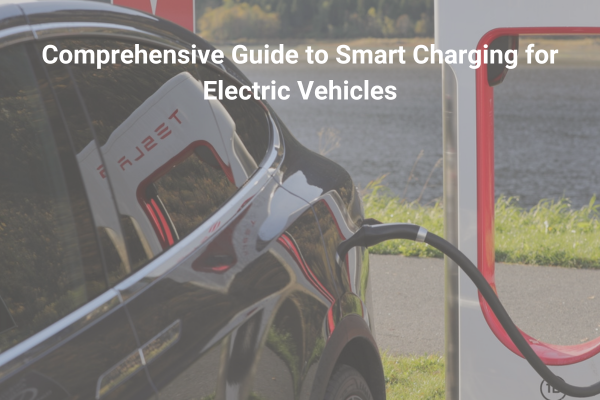Comprehensive Guide to Smart Charging for Electric Vehicles


In this blog, we will take a deep dive into the fascinating world of BMS evolution.
In the early days of electric vehicles, battery management systems (BMS) were relatively rudimentary. The primary focus was on basic monitoring of battery parameters such as voltage and temperature. However, as the demand for EVs grew and the need for more efficient and reliable battery systems became apparent, the development of advanced BMS technologies became imperative.
One of the early challenges in BMS development was accurately estimating the state of charge (SOC) and state of health (SOH) of the battery. SOC refers to the currently available energy in the battery, while SOH represents the overall health and capacity of the battery. Accurate estimation of SOC and SOH is crucial for optimizing battery performance and ensuring its longevity. Overcoming this challenge required the integration of advanced algorithms and improved sensor technology to measure battery parameters accurately.
Another significant challenge was cell balancing. In a battery pack, individual cells can have slightly different capacities or states of charge, leading to imbalances that can reduce the overall performance and lifespan of the battery. Early BMS systems used passive balancing techniques such as resistors to equalize cell voltages. However, these methods were inefficient and limited in their effectiveness. The development of active cell balancing techniques, where energy is redistributed between cells, helped address this challenge and optimize battery performance.
Safety was also a critical concern in the early stages of BMS development. Lithium-ion batteries used in EVs are prone to thermal runaway and overcharging, which can lead to fires or other hazardous situations. Early BMS systems implemented basic safety measures like temperature monitoring and overvoltage protection. However, with the advancement of BMS technology, more sophisticated safety features such as cell-level monitoring, short-circuit protection, and thermal management systems were integrated to enhance the safety and reliability of EV batteries.
Furthermore, the integration of BMS with the rest of the vehicle's systems posed challenges in terms of communication protocols and compatibility. Standardizing communication interfaces and protocols between the BMS and other components became crucial for the seamless integration and efficient operation of EVs.
Looking ahead, several exciting possibilities and developments on the horizon will shape the future of BMS in EVs.
Enhanced Energy Storage and Range: One of the key areas of focus for BMS development is to improve energy storage capacity and extend the driving range of EVs. Advanced BMS algorithms and predictive analytics can optimize energy consumption, considering factors such as driving conditions, weather, and driver behavior. This will result in more efficient use of the battery's energy and increased range, making EVs more practical and appealing to a broader range of consumers.
Faster Charging Solutions: BMS plays a crucial role in managing the charging process of EV batteries. Future BMS technologies are expected to facilitate faster charging rates while ensuring battery safety and longevity. This may involve advancements in battery chemistries, cooling systems, and charging infrastructure, combined with intelligent BMS algorithms to optimize the charging process.
Intelligent Battery Health Management: BMS will continue to evolve in terms of battery health monitoring and management. Advanced diagnostics and prognostics capabilities will enable real-time monitoring of battery conditions, detecting potential issues before they escalate. This will allow for timely maintenance and replacement of battery modules, ensuring optimal performance and longevity.
Integration with Smart Grids: BMS has the potential to play a crucial role in the integration of EVs with smart grids. Through bidirectional communication and intelligent energy management, BMS can enable vehicle-to-grid (V2G) capabilities, allowing EVs to serve as energy storage units and provide power back to the grid during peak demand. This bidirectional flow of energy can help balance the grid, improve grid stability, and optimize the use of renewable energy sources.
Artificial Intelligence and Machine Learning: The integration of artificial intelligence (AI) and machine learning (ML) algorithms into BMS systems opens up new possibilities for optimized battery management. These technologies can continuously learn from data, adapt to driving patterns, and make real-time adjustments to maximize battery performance and efficiency. AI and ML algorithms can also facilitate predictive maintenance, identifying potential battery failures or degradation in advance and enabling proactive measures to mitigate risks.
Sustainable and Recyclable Battery Solutions: As the demand for EVs grows, the focus on sustainable and recyclable battery technologies intensifies. BMS will play a crucial role in optimizing battery usage and extending its lifespan, reducing the overall environmental impact. Additionally, BMS can aid in the development of new battery chemistries and recycling processes, ensuring that end-of-life batteries are properly managed and their valuable materials are reused.
In conclusion, the evolution of battery management systems (BMS) has paved the way for remarkable advancements in the electric vehicle (EV) industry. From early concepts to cutting-edge solutions, BMS has played a crucial role in enhancing battery performance, optimizing energy consumption, and ensuring the safety and longevity of EV batteries. As we look to the future, the possibilities for BMS are even more exciting.
Together, let's unlock the full potential of your electric vehicle and contribute to a cleaner and more sustainable world. Choose cleanenergyev.com for intelligent BMS solutions that go beyond expectations. Contact our sales team now to discover how our products can revolutionize your EV experience.